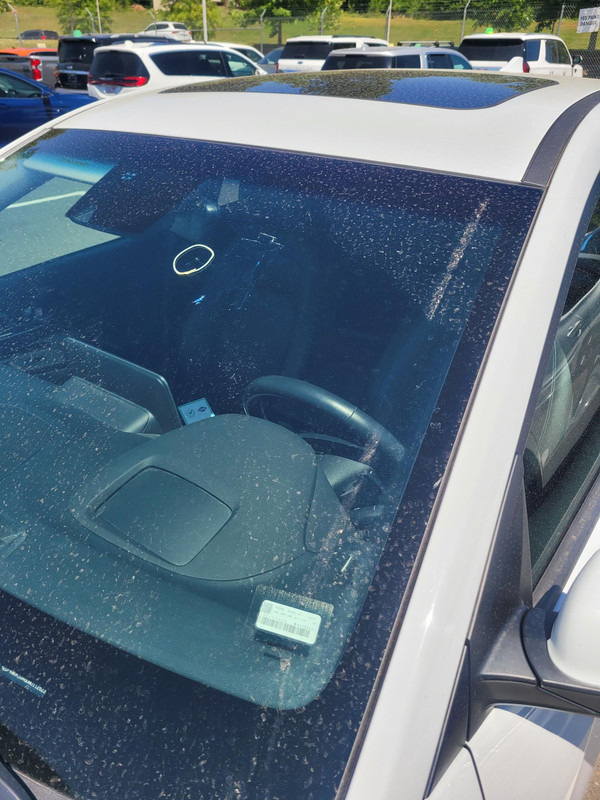The Environmental Impact of Windshield Replacement: Recycling Options
Introduction
When it comes to vehicle maintenance, windshield replacement often falls low on the priority list. However, what many car owners may not realize is that this seemingly minor act carries significant environmental consequences. In an age where sustainability and eco-friendliness are increasingly important, understanding the environmental impact of windshield replacement becomes crucial. This article delves into the various aspects surrounding windshield replacement, focusing particularly on recycling options and their environmental implications.
The Environmental Impact of Windshield Replacement: Recycling Options
Replacing a windshield isn't just about aesthetics or safety; it has broader implications for our environment. Most windshields are made from laminated glass, which is a composite material that can be quite challenging to recycle. As such, many discarded windshields end up in landfills, contributing to the ever-growing waste crisis. But fear not! There are several alternatives available that can mitigate these impacts while still ensuring you receive a quality windshield replacement.
Understanding Windshield Composition
To grasp the environmental impact Hendersonville NC Auto Glass Repair of windshield replacement fully, it's vital to understand what goes into making a windshield.
- Laminated Glass: This is the primary component of most windshields. It consists of two layers of glass with a plastic interlayer sandwiched between them.
- Polyvinyl Butyral (PVB): The plastic layer provides strength and shatter resistance but complicates recycling efforts.
By recognizing these materials, we can better appreciate why recycling options are limited and what challenges need to be addressed.


Challenges in Recycling Windshields
Recycling might seem like a straightforward process, but when it comes to windshields, several hurdles arise:
- Separation of Materials: The laminated structure makes it difficult to separate glass from plastic.
- Limited Facilities: Not all recycling centers are equipped to handle laminated glass.
- Cost: The expense involved in recycling compared to disposal can deter companies from pursuing environmentally friendly practices.
Despite these challenges, some companies are emerging as pioneers in recycling efforts.
The Role of Specialized Recycling Centers
Specialized recycling centers have begun addressing the unique challenges posed by windshields. These facilities utilize advanced technologies to break down laminated glass and separate materials for reuse:
- Glass Recovery: Many centers focus on recovering glass for use in various applications.
- Plastic Reprocessing: The PVB layer can often be processed into new products rather than contributing to landfill waste.
Innovative Uses for Recycled Materials
What happens once recycled materials leave the processing facility? They can find new life in various industries:
- Construction Materials: Recycled glass can be used in asphalt or concrete mixes.
- Artistic Endeavors: Some artists incorporate recycled glass into sculptures or decorative pieces.
These innovative uses highlight the potential benefits of investing time and resources into proper recycling processes.
Eco-Friendly Practices for Windshield Replacement
While specialized recycling centers play a crucial role in minimizing environmental impacts, individual car owners can also adopt eco-friendly practices during their windshield replacement journey:
- Choose Recyclable Options: When selecting a new windshield, inquire about recyclable materials.
- Find Certified Technicians: Look for technicians who prioritize eco-friendly practices and know how to recycle old windshields properly.
- Educate Yourself and Others: Awareness is key! Share knowledge about the importance of recycling windshields within your community.
The Economic Perspective on Windshield Recycling
From an economic standpoint, investing in recycling programs might seem costly upfront but offers long-term savings:
- Reduced Landfill Costs: Lowering waste disposal fees can lead directly to cost savings for businesses and municipalities alike.
- Job Creation: As demand rises for specialized recycling services, new jobs will be created within local communities.
Overall, the economic benefits associated with environmentally responsible practices counterbalance initial investments.
Case Studies in Successful Windshield Recycling
Learning from successful case studies provides valuable insights into effective strategies for windshield recycling:
Case Study 1: ABC Glass Solutions
This company implemented an innovative program aimed at collecting old windshields from auto shops across their region. Through partnerships with local technicians and public awareness campaigns, they successfully diverted over 10 tons of laminated glass from landfills within one year alone.
Case Study 2: Green Auto Glass
Green Auto Glass specializes in both replacing windshields using sustainable materials and actively promoting their recycling initiatives online. Their efforts have led them to become a model for other businesses looking to make eco-friendly changes while improving customer loyalty.
The Long-Term Benefits of Sustainable Practices
It's essential not only to look at immediate outcomes but also consider long-term benefits stemming from sustainable practices regarding windshield replacement:

- Improved Public Perception
- Increased Customer Loyalty
- Contribution Towards Climate Change Mitigation
By adopting eco-friendly measures today, we pave the way for future generations' well-being tomorrow!
FAQs
1. What types of materials make up a typical windshield?
Most windshields consist primarily of laminated glass with a polyvinyl butyral (PVB) interlayer providing strength and safety features.
2. Can I recycle my old windshield?
Yes! However, it's essential to check with local recycling facilities or specialized centers that handle laminated glass properly.
3. Are there any companies focused on sustainable windshield replacements?
Yes! Numerous businesses prioritize eco-friendly practices by utilizing recyclable materials and implementing robust recycling programs.
4. What happens if my old windshield isn't recycled?
If not properly disposed of or recycled, discarded windshields typically end up in landfills contributing further waste issues—this impacts both our environment and natural resources negatively!
5. How can I ensure my new windshield is environmentally friendly?
Inquire about materials used during installation while seeking out certified workshops known for prioritizing sustainability initiatives during replacements!
6. Are there any financial incentives tied to choosing eco-friendly services?
Many regions offer tax credits or discounts through green initiatives aimed at encouraging consumers toward environmentally conscious choices—check your area!
Conclusion
In conclusion, understanding "The Environmental Impact of Windshield Replacement: Recycling Options" allows us all—car owners included—to take actionable steps toward preserving our planet's health while maintaining vehicle safety standards effectively! By educating ourselves about available resources—from specialized recycling centers down through individual choices—we're empowered collectively as stewards over this beautiful Earth we inhabit together!
So next time you're faced with the decision of replacing your windshield remember its far-reaching implications; opt-in favorably towards greener solutions ensuring both personal benefit & collective responsibility!